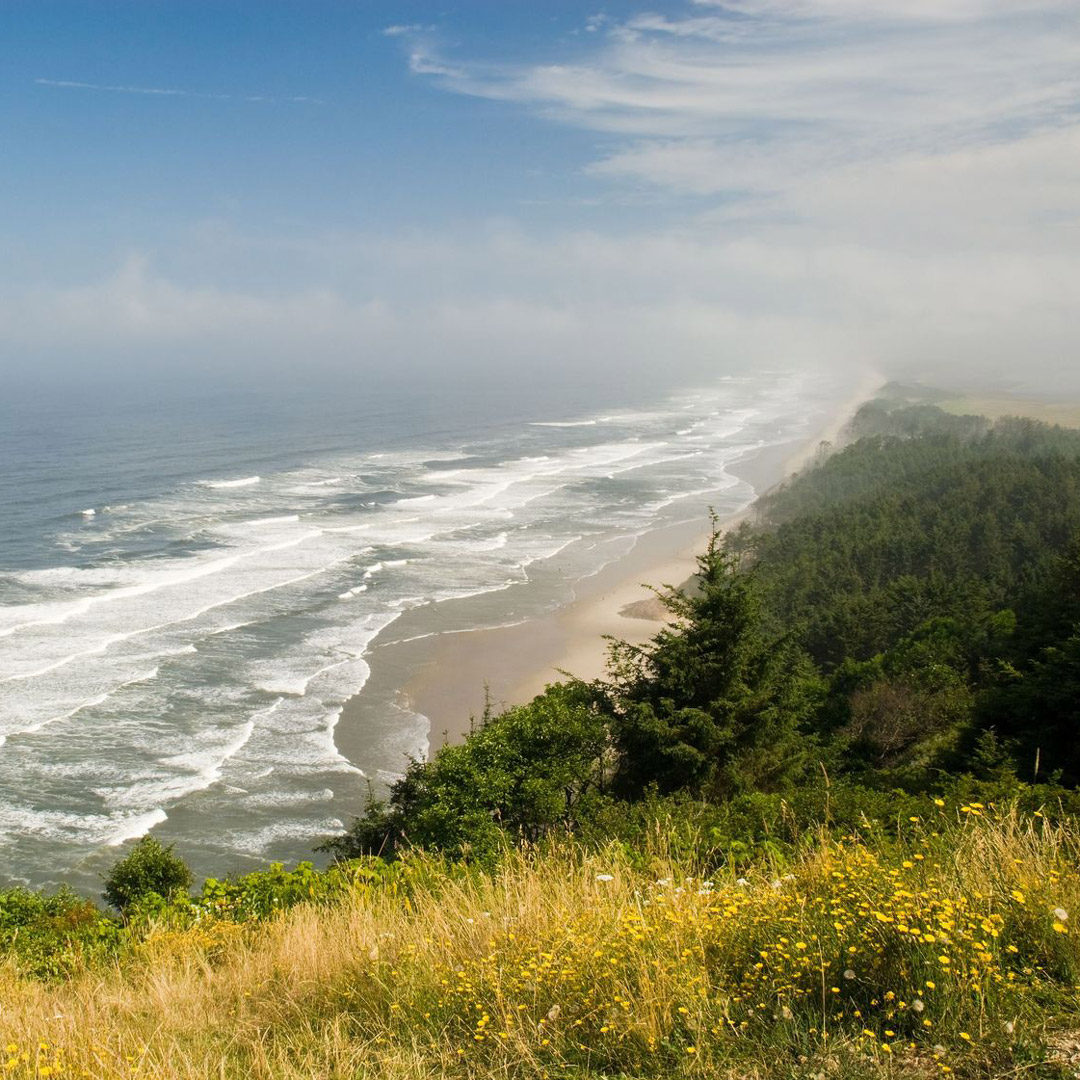Oregon’s Cape Lookout State Park
One of the scenic highlights of the Three Capes route, Cape Lookout State Park (off U.S. 101, $5 day use) juts out nearly a mile from the mainland, like a finger pointing out to sea. The cliffs along the south side of the cape rise 800 feet from the Pacific’s pounding waves. The best way to take in the vista and the thrill of the location is on foot.

Hiking the Cape Lookout Trail
Hiking to the end of mile-wide Cape Lookout is one of the top coastal hikes in Oregon. The trail begins either at the campground, where it climbs 2.5 miles up to a ridgetop trailhead with a parking lot, or from the Three Capes road at a well-signed trailhead. An orientation map at the trailhead details the options. The main 2.5-mile trail out to the end, along the narrowing finger of land, can give hikers the impression that they’re on the prow of a giant ship suspended 500 feet above the ocean on all sides. Here, more than anywhere else on the Oregon coast, you get the sense of being on the edge of the continent. Giant spruce, western red cedars, and hemlocks surround the gently hilly trail to the tip of the cape. In March, Cape Lookout is a popular vantage point for whale-watching. June through August, a bevy of wildflowers and birds further enhance the rolling terrain en route to the tip of this headland, and in late summer red huckleberries line the path.
Halfway to the overlook, there are views north to Cape Meares over the Netarts sand spit. Even if you settle for a mere 15-minute stroll down the trail, you can look southward beyond Haystack Rock to Cascade Head. Right about where the trees open up, look for a bronze plaque commemorating the crash of a World War II plane and nearly a dozen casualties, which is embedded in the rock wall bordering the right-hand (north) side of the trail at eye level. If you’re unable to take this hike, two unmarked turnouts along the Three Capes road between the sand dunes and Cape Lookout parking lot let you survey the terrain south to Cape Kiwanda. Don’t be surprised if you see hang gliders and paragliders.
Another popular trail in the state park heads north from the campground through a variety of estuarine habitats along the sand spit separating Netarts Bay from the Pacific. It’s a popular site for agate hunters, clammers, and crabbers.
Cape Lookout Camping
At the southern end of Netarts Spit is the state park’s campground and beach extension (13000 Whiskey Creek Rd. W., information 503/842-4981, 800/452-5687 for reservations, $5-8), which also encompasses the entire cape and the seven-mile-long Netarts Spit within its boundaries. The campground has 170 tent sites ($21) and 38 full-hookup sites ($33), as well as 13 yurts ($47), three cabins (with baths, a kitchen, and a TV/video player, $88-98), and a hiker-biker camp ($6); discounts apply October-April. Some yurts accept pets ($10). Amenities include showers, flush toilets, and evening programs. Reservations and a deposit are almost always required at this popular campground.
South of Cape Lookout, the terrain suddenly changes. Extensive sand dunes surrounding the Sand Lake Estuary suddenly appear, drowning the forest in sand. The dunes and beach attract squadrons of dune buggy enthusiasts. Camping is available year-round at Sand Beach Campground (5 miles south of Cape Lookout on Galloway Rd., 503/392-3161 or 877/444-6777, $16, reservations), a part of the Siuslaw National Forest, with has basic sites for tenters and RVs. This dramatic area is also popular with hikers.
Related Travel Guide
Pin It for Later

